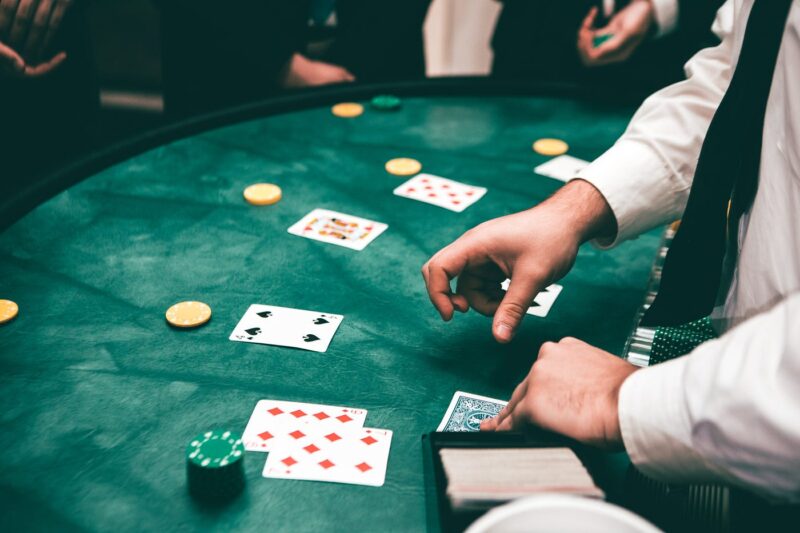What drives someone to bet on uncertain outcomes? Is it the thrill, the promise of wealth, or something deeper? For many, gambling feels like harmless entertainment. For others, it spirals into an uncontrollable force that reshapes lives. Let’s examine when the line between enjoyment and dependency gets blurred.
Key Points
- Gambling can be entertainment or a dangerous habit, depending on personal control.
- Recognizing the warning signs of addiction is crucial for intervention.
- Responsible gaming requires setting limits and knowing when to stop.
- The industry thrives on psychology, creating environments designed to hook players.
- Help is available for those struggling with compulsive gambling behavior.
Why Do People Gamble in the First Place?
The thrill of unpredictability appeals to human nature. Winning feels euphoric. Losing can push people to chase what they’ve lost. The flashing lights, vibrant sounds, and glamorous settings in casinos amplify this experience, pulling players into a carefully orchestrated atmosphere of excitement.
For some, it’s about winning money. For others, it’s an escape from daily stress. A small percentage find themselves locked in a cycle that feels impossible to escape. But when does it stop being a game?
How Do Casinos Influence Player Behavior?

The environment isn’t just luck-driven. The house carefully constructs every detail to keep players engaged. Take Casino 168 as an example. It offers a seamless digital experience, complete with live games, slots, and quick deposit-withdrawal systems. This convenience often makes it harder for people to step away. The ease of access combined with the lure of instant rewards creates a perfect storm for overindulgence.
Understanding how platforms like Casino 168 operate helps players stay aware of the subtle tactics used to hold their attention. Being informed is the first step toward maintaining control.
What Are the Warning Signs of Problem Gambling?
Not everyone who gambles develops a problem. But certain patterns can reveal when casual betting starts leaning toward compulsion.
Key indicators:
- Spending more than intended, repeatedly.
- Hiding financial losses or borrowing money.
- Missing obligations like work or family events to gamble.
- Experiencing irritability or anxiety when unable to bet.
- Constantly thinking about the next opportunity to play.
Recognizing these signs early is essential. Many who struggle feel ashamed or isolated. But addressing the issue sooner can prevent bigger consequences.
Who Is Most at Risk of Developing an Addiction?
Anyone can fall into compulsive behaviors, but some factors increase susceptibility. Genetics, personal stress levels, and even proximity to betting venues all play a role. Psychological studies show that intermittent rewards (unpredictable wins) can create habits faster than predictable ones.
Young adults, particularly men, represent a higher risk group. Digital platforms increase exposure, allowing gambling from smartphones anytime, anywhere. This accessibility introduces risks that previous generations never faced.
Can Gambling Be Enjoyed Responsibly?

Yes, but only with clear boundaries. Responsible gaming relies on self-discipline and awareness of personal limits.
Steps to stay in control:
- Decide on a budget before starting and never exceed it.
- Avoid chasing losses, no matter how small they seem.
- Take regular breaks to evaluate how much time and money you’ve spent.
- Be honest with yourself about why you’re betting.
Viewing gambling as a form of entertainment rather than income prevents unrealistic expectations. Recognizing that the odds always favor the house helps maintain perspective.
Are Casinos Responsible for Addiction?
This question sparks significant debate. Critics argue that the industry profits off human vulnerability. Supporters claim individuals must take responsibility for their choices. The truth lies somewhere in between.
Casino operators, both physical and online, employ psychologists to design experiences that encourage longer participation. Features like near-misses in slot machines or loyalty rewards nudge players toward spending more time and money.
However, some companies, including online platforms, now promote responsible gaming initiatives. These include tools for self-exclusion, spending limits, and time trackers. Whether these efforts are genuine or just PR strategies remains an open question.
How Can Someone Recover from a Gambling Problem?
Recovery begins with acknowledgment. Accepting there’s an issue can feel daunting, but it’s the foundation for change.
Steps toward recovery:
- Seek professional help through counselors or support groups.
- Inform trusted friends or family about the problem for accountability.
- Use financial safeguards, like limiting access to funds or blocking gambling sites.
- Focus on building new hobbies to replace old habits.
Countless stories of recovery show it’s possible to regain control. With effort and support, many have turned their lives around, proving that the grip of addiction isn’t permanent.
Does Legalization Increase Gambling Problems?

Legalization brings both benefits and risks. Regulated environments ensure fairness and consumer protection. However, availability often correlates with increased participation, which can lead to higher rates of problematic behavior.
Governments and operators must strike a balance. Education campaigns, strict advertising regulations, and funding for addiction services are critical steps in addressing potential fallout.
Closing Thoughts
Gambling walks a fine line between fun and harm. For those who approach it responsibly, it can provide excitement and entertainment. But for those unable to maintain control, the consequences reach far beyond financial losses.
Awareness and education remain the best defenses against addiction. By staying informed and setting boundaries, individuals can enjoy the thrill of betting without letting it dominate their lives.


